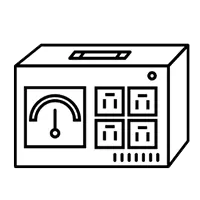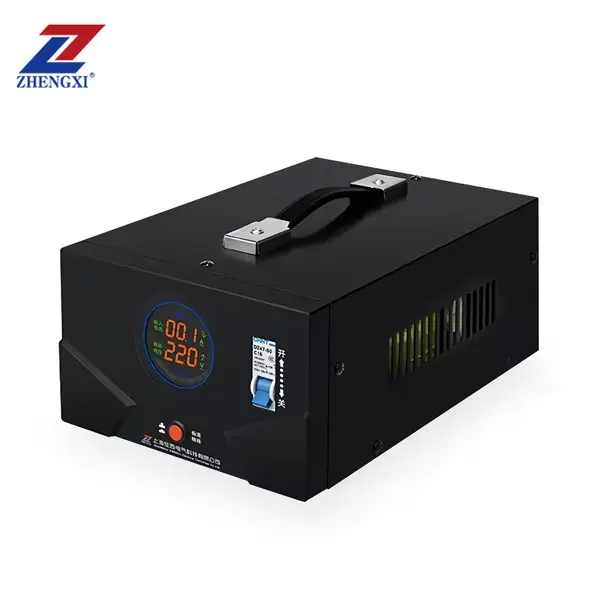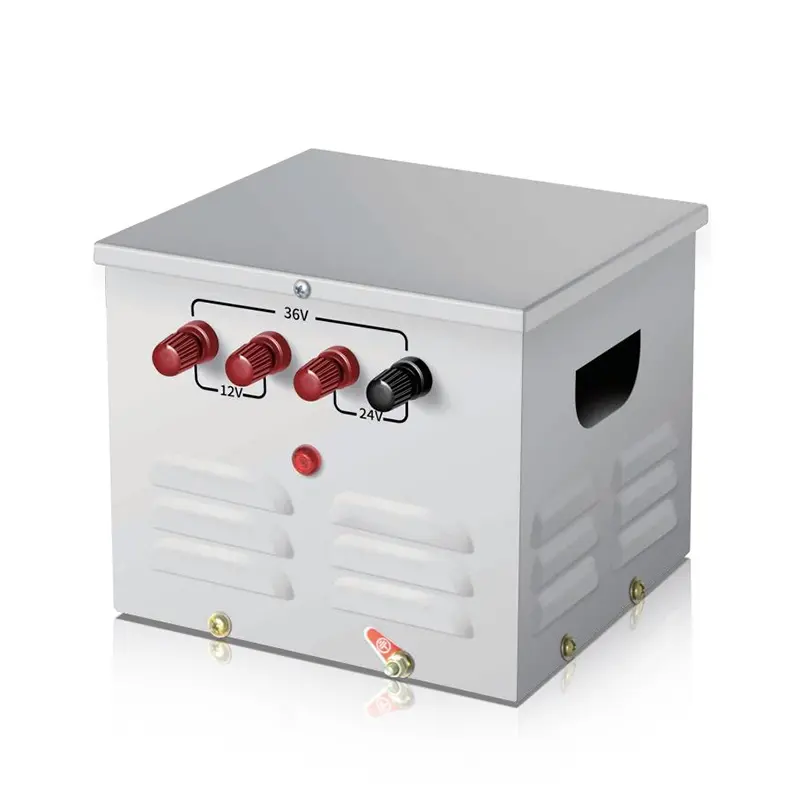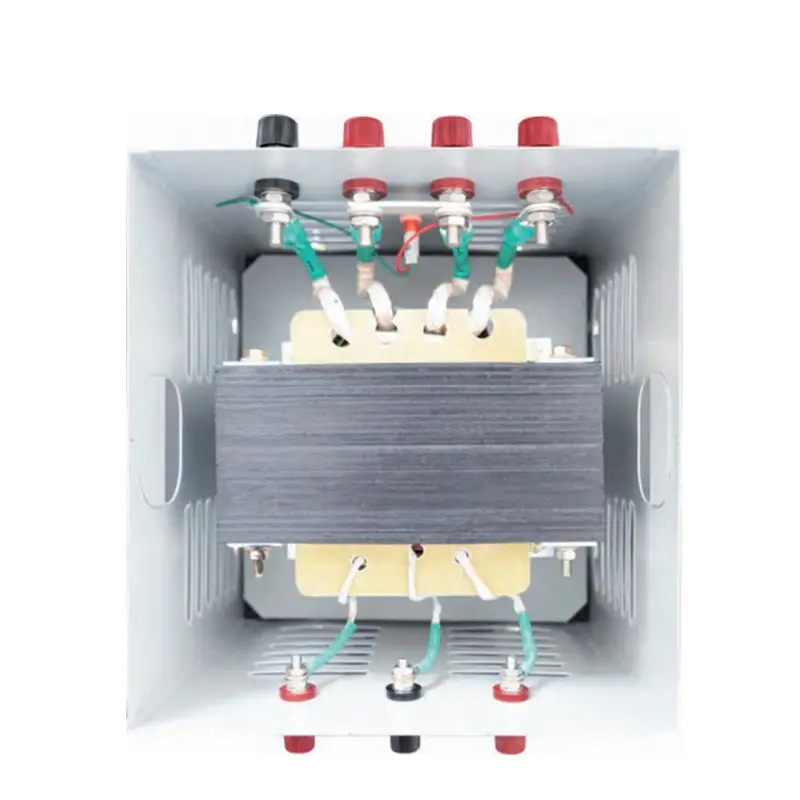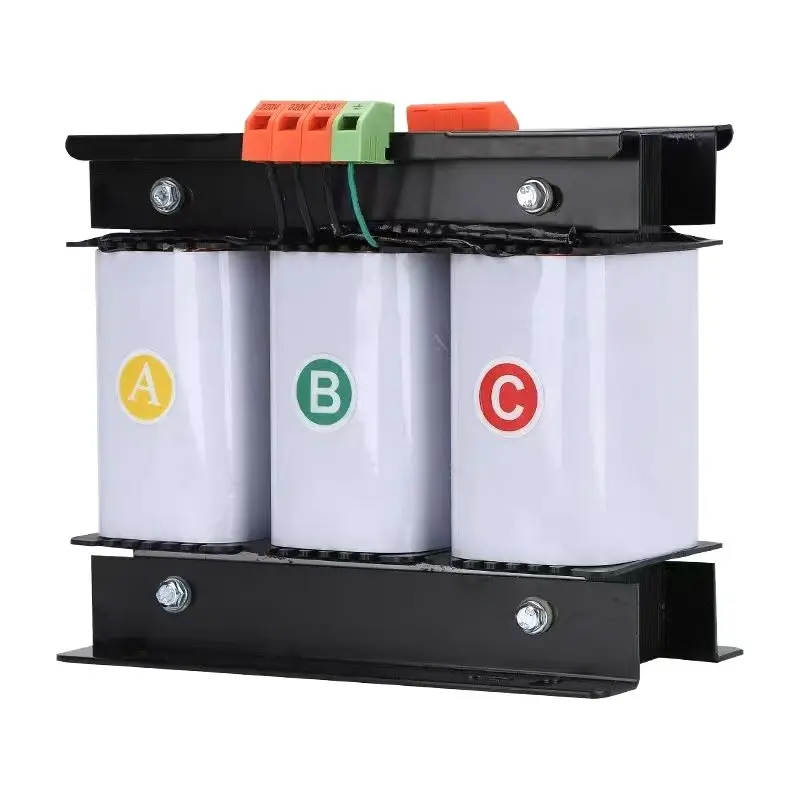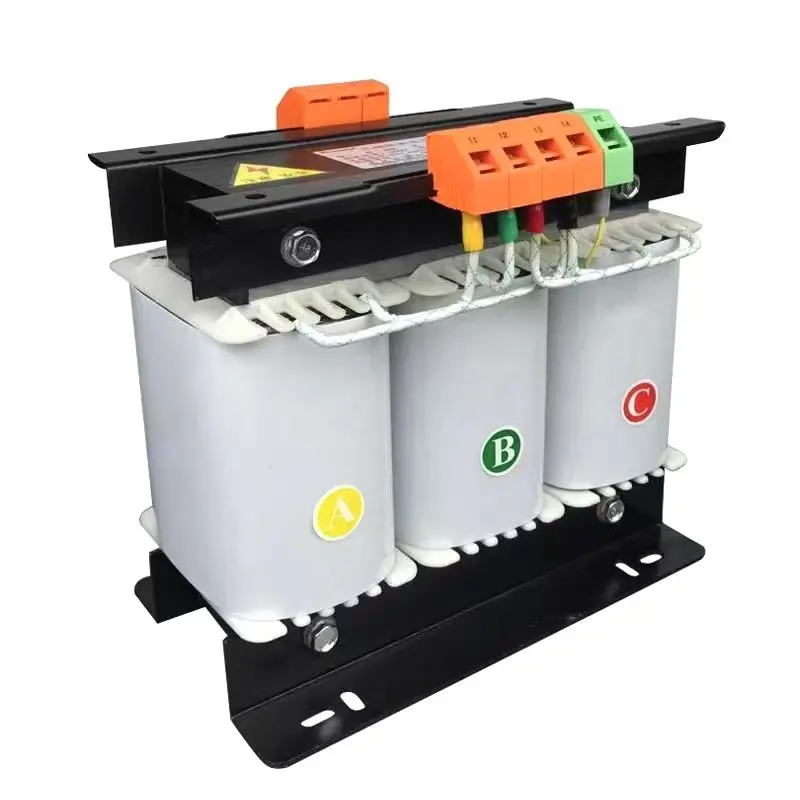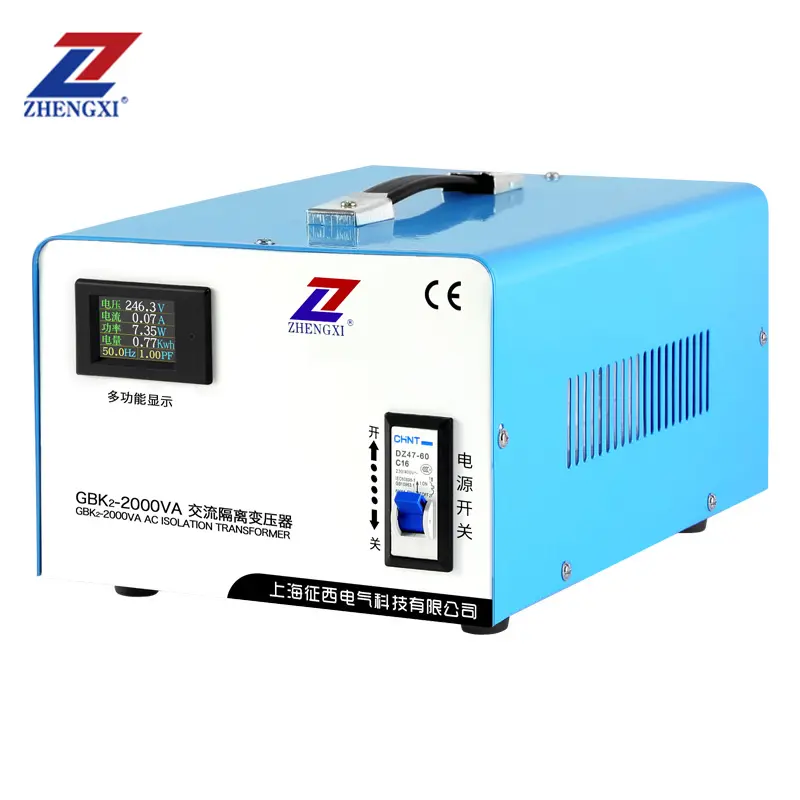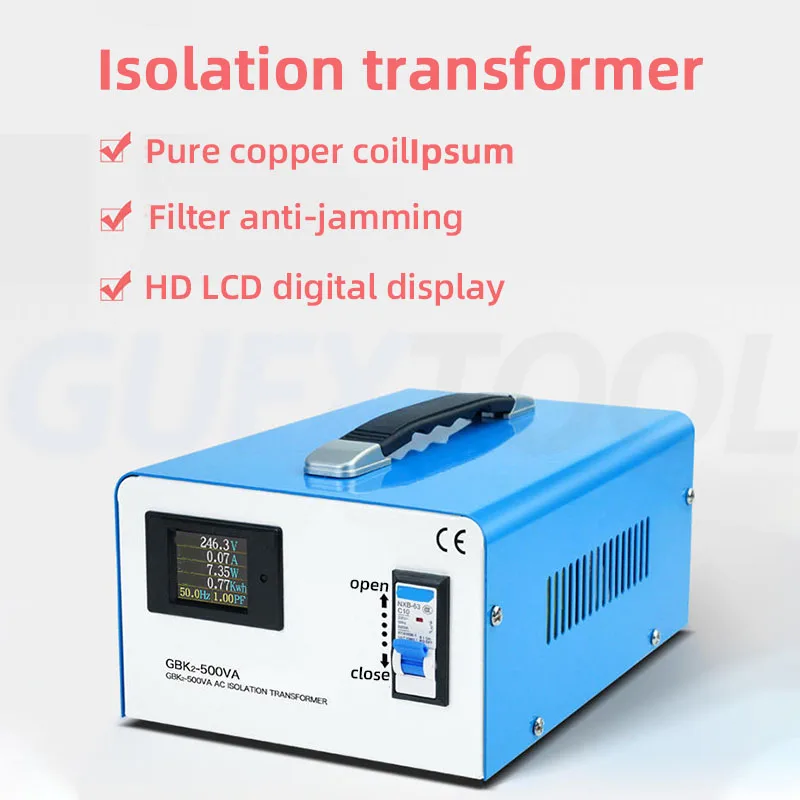Dans les systèmes électriques et d'automatisation modernes, transformateurs sont des composants indispensables. Ils ne se contentent pas d'ajuster les niveaux de tension, mais assurent également sécurité, stabilité et suppression du bruit à travers différents circuits.
Parmi les différents types de transformateurs utilisés dans les environnements industriels, on trouve les transformateurs suivants transformateur d'isolement et le transformateur de commande sont deux des plus courantes - et souvent les plus mal comprises.
Bien qu'ils soient construits de la même manière et qu'ils fonctionnent sur la base de induction électromagnétique, leur intention de conception, comportement électrique et applications sont très différents. Il est essentiel de comprendre ces différences pour choisir le bon transformateur afin d'améliorer à la fois l'efficacité et la sécurité opérationnelle.
En tant que fabricant professionnel de transformateurs, ZHENGXI fournit une large gamme de transformateurs de contrôle et transformateurs d'isolement sur mesure pour les systèmes d'alimentation industriels et commerciaux dans le monde entier.
Qu'est-ce qu'un transformateur de contrôle ?
A transformateur de commande, également connu sous le nom de transformateur de puissance de commandeest spécifiquement conçu pour alimenter en électricité circuits de contrôle, feux de signalisation, relaiset contacteurs dans les machines ou les systèmes d'automatisation.
Il fonctionne généralement sur AC 50Hz ou 60Hz, avec tensions d'entrée jusqu'à 1000Vet est conçu pour fonctionnement continu sous charge nominale.
L'objectif principal d'un transformateur de commande est de réduction de la tension d'entrée élevée (par exemple, 380V ou 220V) à un une tension de commande plus faible et plus sûre tels que 36V ou 24V. Cela permet non seulement de protéger les opérateurs contre les chocs électriques, mais aussi de garantir une tension stable pour les composants de contrôle.
Par exemple, dans un système de machine-outil, un Transformateur de commande 380V/36V fournit la tension nécessaire aux boutons-poussoirs, aux indicateurs et aux relais, ce qui permet un fonctionnement précis et sûr.
Caractéristiques principales des transformateurs de contrôle
- Fournir tension stable et constante pour les circuits de contrôle.
- Offre isolement partiel entre les enroulements primaire et secondaire.
- Soutien plusieurs sorties de tension secondaire (6,3V, 12V, 24V, 36V, 110V, etc.).
- Conçu pour service continu et petites charges électriques.
- Couramment utilisé dans Machines CNC, systèmes d'automatisationet panneaux de contrôle.
A transformateur de commande est donc idéal pour les équipements industriels qui nécessitent une régulation de tension stable et une isolation limitée dans une conception compacte et efficace.
Qu'est-ce qu'un transformateur d'isolement ?
Un transformateur d'isolementComme son nom l'indique, il est principalement conçu pour isoler électriquement deux circuits tout en maintenant le même niveau de tension.
Contrairement à un transformateur de commande, ses enroulements primaires et secondaires sont complètement séparésans connexion électrique directe - seulement couplage magnétique à travers le noyau de fer.
Cet isolement permet d'éviter choc électrique, dommages aux équipementset les interférences électromagnétiques (EMI). La plupart des transformateurs d'isolement ont un Rapport de tension 1:1 (par exemple, 220V à 220V), en se concentrant sur les éléments suivants sécurité et réduction du bruit plutôt que la conversion de la tension.
Caractéristiques principales des transformateurs d'isolement
- Fournir isolation galvanique totale entre les circuits d'entrée et de sortie.
- Prévenir les chocs électriques et de réduire bruit des lignes électriques.
- Couramment utilisé pour l'entretien, les essais, la médecine et les laboratoires l'équipement.
- Peut filtrer les harmoniques et supprimer les interférences électromagnétiques (EMI).
- Idéal pour les instruments sensibles, les ordinateurs et les systèmes de contrôle de précision.
Différences fondamentales entre les transformateurs de commande et les transformateurs d'isolement
| Fonctionnalité | Transformateur de contrôle | Transformateur d'isolation |
|---|---|---|
| Fonction principale | Abaisse la tension pour les circuits de commande | Isolation électrique des circuits pour plus de sécurité |
| Rapport de tension | Réduction (par exemple, 380V → 36V, 220V → 24V) | 1:1 (par exemple, 220V → 220V) |
| Connexion | Isolation partielle ; alimentation des charges de contrôle | Isolation totale ; pas de connexion électrique directe |
| Application | Machines-outils, panneaux de contrôle, systèmes d'automatisation | Laboratoires, bancs d'essai, appareils médicaux et sensibles |
| Fonction de sécurité | Fournit une sortie basse tension sûre | Prévient les chocs électriques et les interférences électromagnétiques |
| Puissance nominale | Typiquement 25VA - 5KVA | Gammes de 0,5KVA à des centaines de KVA |
Un transformateur de contrôle peut-il faire office de transformateur d'isolement ?
Dans certains cas, un transformateur de commande peut servir de transformateur d'isolementIl permet également de séparer les enroulements primaires et secondaires.
Par exemple, un Transformateur de commande 380V/36V offre à la fois une réduction de la tension et une isolation électrique pour les circuits de contrôle.
Toutefois, le L'inverse n'est pas vrai - pas tous transformateurs d'isolement peut remplacer transformateurs de contrôle.
Cela s'explique par le fait que transformateurs de contrôle sont conçus pour gérer des fluctuations fréquentes de la tension et les surcharges à court terme qui se produisent dans les circuits de contrôle, alors que les transformateurs d'isolement sont optimisés uniquement pour sécurité et suppression du bruit.
👉 En résumé :
Chaque transformateur de commande fournit un certain niveau d'isolation, mais tous les transformateurs d'isolation ne peuvent pas fonctionner comme des transformateurs de commande.
Applications typiques
Applications des transformateurs de contrôle :
- Machines-outils et machines à commande numérique
- Systèmes d'automatisation et de contrôle PLC
- Armoires de commande et panneaux électriques
- Systèmes de signalisation et de feux indicateurs
- Systèmes d'éclairage industriel
Applications des transformateurs d'isolement :
- Bancs d'entretien et de réparation
- Instruments d'essai ou médicaux sensibles
- Matériel audio et de laboratoire
- Systèmes de filtrage de l'alimentation et de protection contre les surtensions
Comment choisir entre les deux
Pour choisir le bon transformateur pour votre système, tenez compte des facteurs suivants :
| Critères de sélection | Transformateur recommandé |
|---|---|
| Nécessité d'une alimentation basse tension pour les circuits de contrôle | Transformateur de contrôle |
| Nécessité d'isoler électriquement les systèmes pour des raisons de sécurité ou de réduction des interférences électromagnétiques | Transformateur d'isolation |
| Nécessité de tensions secondaires multiples | Transformateur de contrôle |
| Besoin de tester ou de réparer des appareils électroniques en toute sécurité | Transformateur d'isolation |
Si votre demande nécessite à la fois la régulation de la tension et l'isolation électrique, ZHENGXI peut fournir transformateurs hybrides sur mesure qui intègrent les deux fonctions pour une sécurité et des performances maximales.
Pourquoi choisir les transformateurs ZHENGXI
En tant que principal fabricant de transformateurs avec des décennies d'expérience, ZHENGXI livre des transformateurs d'isolement et de contrôle fiables et à haut rendement qui répondent aux normes internationales et aux attentes des clients dans le monde entier.
Nos avantages sont les suivants
✅ Haute efficacité : Faible perte de puissance et production minimale de chaleur.
✅ Sécurité et durabilité : Matériaux d'isolation avancés et construction robuste.
✅ Personnalisation : Options OEM/ODM pour la tension, la capacité et la conception.
✅ Certifications : Conforme aux normes CE, ISO9001 et RoHS.
✅ Soutien mondial : Assistance technique et livraison rapide dans plus de 30 pays.
Conclusion
Tandis que transformateurs de contrôle et transformateurs d'isolement peuvent sembler similaires dans leur structure, leur objectifs et buts de la conception diffèrent considérablement.
- A Transformateur de contrôle se concentre sur la fourniture de une alimentation stable et à basse tension pour les circuits de contrôle.
- Un Transformateur d'isolation se concentre sur sécurité et séparation électrique entre les systèmes.
Sélection des améliorations du transformateur la sécurité du système, fiabilité des équipementset performance globale.
Une réputation de qualité et d'innovation n'est plus à faire, ZHENGXI fournit transformateurs de qualité industrielle qui répondent aux besoins d'alimentation et de protection des systèmes d'automatisation modernes.
👉 Découvrez la gamme complète de transformateurs de contrôle et d'isolation Our's ou demander une solution personnalisée conçus pour répondre à vos besoins industriels spécifiques.





